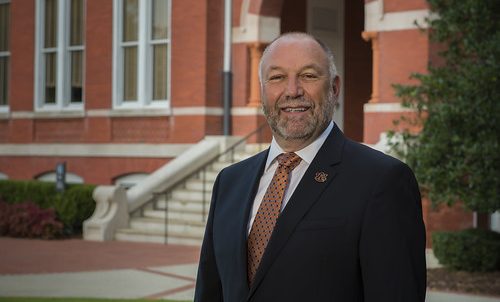Auburn University President Steven Leath says there is crucial need for wildlife research and educational programs to develop the next generation of conservationists.
Leath, serving as the keynote speaker Monday night during Bear Trust International’s annual meeting in Bozeman, Montana, said, “It’s the responsibility of land-grant universities to train the next generation of conservation leaders and craft innovative and forward-thinking conservation policy.
“This is our focus at Auburn, and it’s the reason the School of Forestry and Wildlife Sciences is internationally regarded as a leader in wildlife conservation and management education.”
Leath serves as the science and education advisor for Bear Trust International, an organization devoted to conserving all eight species of the world’s bears, other wildlife and habitat.
He detailed Auburn’s Deer Lab, black bear research and new degrees in wildlife enterprise management and in geospatial and environmental informatics. Programs like these are vital to attracting students to enter wildlife and natural resource management careers, he said.
“Just as we prepare students for the careers of tomorrow, we must prepare our curriculum for the professionals of tomorrow,” he said. “We must successfully recruit, educate and train a diverse generation of conservation scientists and managers to prepare them to become effective leaders for the advancement of sound wildlife science, conservation, management and policy.”
Bear Trust International’s conservation policy, as listed on its website, is based on four values:
- Conservation should be based on sound science and make economic sense; the result of conservation action should help ensure long term sustainability of bear populations and economies;
- Conservation should include both public and private lands;
- Nations, communities and people have a shared responsibility to conserve bear populations and their habitats for present and future generations; and
- Hunting is a part of the world’s natural heritage and should be used as one of many tools for effective wildlife management.
“There is an increasing disconnection between people and their environment, and this discord results in a lack of public awareness and concern,” Leath said. “There is also a trend of moving away from science-based natural resource management and a lack of appreciation for conservation policy. Therefore, Bear Trust International is fully committed to the North American model of conservation.”
Originally published June 18th, 2019.
(Written by Charles Martin)










